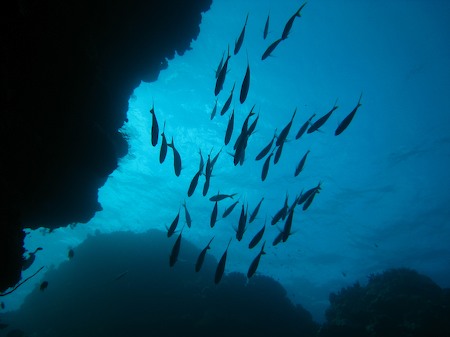John Bird and John Fortune explain what’s being going on in the world of finance for the South Bank Show…
🙂
Many thanks to Hap for the link
John Bird and John Fortune explain what’s being going on in the world of finance for the South Bank Show…
🙂
Many thanks to Hap for the link
A nice demo of a new interaction mode. I can’t quite decide how useful it is yet, but they get points for innovation! (And for a good video)
Thanks to Claes-Fredrik for the link.
My brother Simon sent me a link to this splendid short performance by Raymond Crowe (who describes himself as an ‘unusualist’).
My brother Simon pointed out a wonderful use for YouTube tonight: finding those great comedy sketches that you remember from days of yore. So I went off searching for Peter Cook and Dudley Moore and came across an old favourite – the art gallery sketch:
Cook was absolutely brilliant at improvisation, but Moore had many other talents. I love his parody of Beethoven: Lots more good stuff where they came from!
The NYT’s David Pogue has done a fabulous little video about the process of reviewing the iPhone. Very nice!
Many thanks to John for the link.
Many thanks to Frazer for the link to this rather sweet binary adding machine:
Not quite sure why, but I find this rather appealing. An interesting mix of cultural influences.
I’ve now converted the second of my talks from the GOVIS 2007 conference. This one is about Exbiblio – a project to bring paper documents to life by giving them digital capabilities.
You can watch it directly here, if you should be so inclined, or there are links below to versions you can download and play in QuickTime or iTunes if wanted.
These are both H.264-based MP4 files. You can right-click and save them to disk.
IPOD version (71MB) (mirror)
High quality MP4 version (162MB) (mirror)
Windows Media version (100MB)
 This work is the property of GOVIS and is licensed under a
This work is the property of GOVIS and is licensed under a
Creative Commons Attribution-Noncommercial-No Derivative Works 3.0 License.
Last month I was invited to give a talk about our work at the GOVIS conference in New Zealand.
The video of the full talk is now available in various formats from the Ndiyo site, in case you’re interested!
Ah, well, I might as well embed it here too… such is the magic of the web…
I spent Friday and Saturday diving on the Great Barrier Reef. The timing was simply based around flight schedules, but by a happy coincidence, Friday was also my 40th birthday. If you need to spend such an occasion on the far side of the world from most of your loved ones, it’s hard to find a better place to do it!
I rented a little camera mounted in an underwater enclosure, and took lots of photos. But I found it was capable of taking short movie clips as well…



I’m in Wellington, New Zealand, where I arrived yesterday after about 22 hours of flights and airports. And that was from Seattle – already quite a distance from home.
Meanwhile, back in the UK, Tony Blair is congratulating Nick Sarkozy. In French. Pretty good French, too, in so far as I’m a judge. Certainly better than Margaret Thatcher’s.
The fact that I can watch it, comment on it, even rebroadcast it from my hotel room in New Zealand also says a lot about how the world has changed since Maggie’s time.
Elton John has the reputation of writing his songs in very short periods of time. Richard E Grant puts him to the test. Quite fun.
[
The original YouTube video has now been removed, but you can still see the clip here.
]
This is probably at least partly staged, but I don’t think it’s a complete set-up.
© Copyright Quentin Stafford-Fraser
Recent Comments